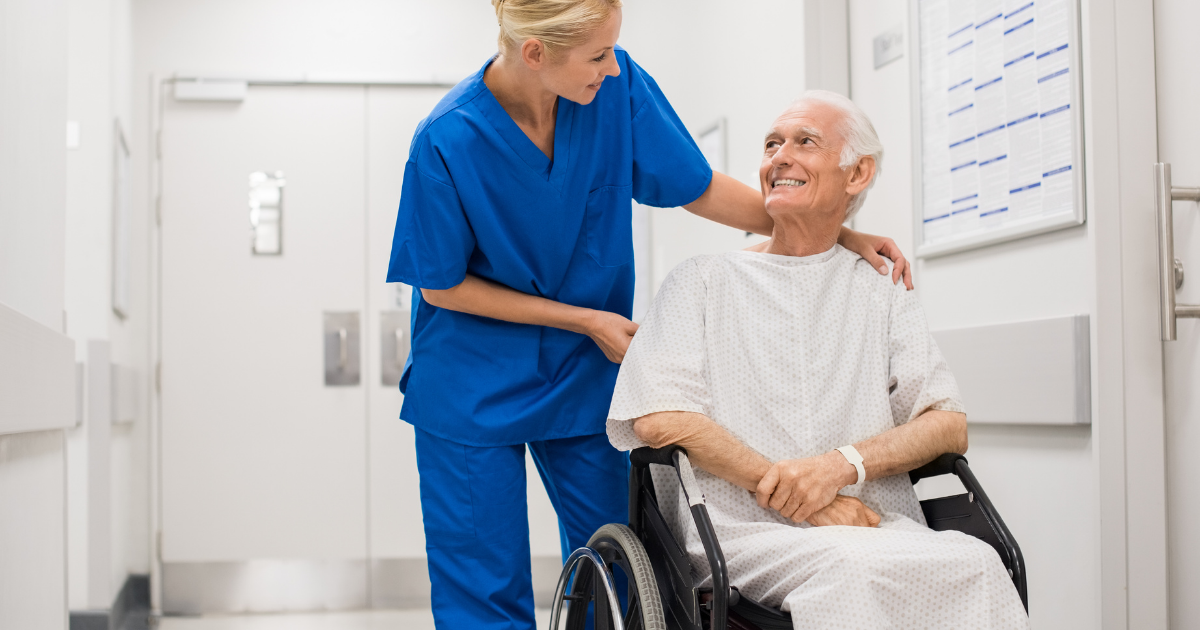Being discharged from the hospital after a treatment or procedure at any age can be a stressful experience for you and your loved ones. There may be follow-up visits with a specialist or surgeon, therapy appointments, or trips to your primary care doctor’s office. Enjoying a smoother transition from hospital to home requires the ability to plan accordingly and stay the course based on your discharge instructions. As a senior, minimizing your risk for hospital readmission is possible by following these recovery care tips.
Prepare for Follow-Up Doctor Visits
While serving a critical role within your overall recovery process, your primary care provider can answer questions about your condition, treatment options, medicines, and follow-up care.
Here’s how to prepare for follow-up visits with your primary care doctor:
- Bring your prescription bottles or a list of medications with you, along with the dosages.
- Compile a prioritized list of questions or concerns if there isn’t time to ask them all.
- Bring a pen and notebook to jot down important information so you won’t forget any of their instructions.
You can also invite a friend, family member, or neighbor to sit in during the appointment so they can take notes and record instructions. If you have a newer cellphone, use it to record the doctor’s directions and any answers to questions you might have.
Choose Your Recovery Setting
Upon leaving the hospital, your recovery plan will likely include therapy and other rehabilitation services. Depending on the level and type of care you need, those services may be provided in various settings.
Skilled nursing care centers
This setting is often the next level of care when you are medically able to leave the hospital. Skilled nursing facilities (SNFs) and rehabilitation centers provide both short-term and long-term nursing rehabilitation care and therapy.
Examples of skilled care include nursing and physical, occupational, or speech therapy, along with assistance for personal care and activities of daily living (ADLs). Skilled nursing care can include changing wound dressings, giving IV meds, and educating patients and their families about their loved one’s condition, care, and instructions.
Your private residence
Home health care includes services like skilled nursing and therapy, while home care refers to non-medical services that the patient receives in the comfort of their private residence. Within the next five to ten years, home care and home health will become less distinct as families look to “home health care providers” to look after their loved ones in a home environment.
As part of the continuum of care, these organizations serve a vital role while coordinating care with other providers as their staff visit the patient’s home over weeks or even months. Having access to the recovering patient allows in-home caregivers to get to know them and their families well, develop a good sense of the patient’s baseline level of health, record observations, and monitor symptoms and vitals from a visit to visit.
Utilize Additional Community Resources
Patient healthcare navigators are an innovative way to reduce readmissions for confused patients who leave the hospital feeling overwhelmed while struggling to manage lengthy medication lists and multiple outpatient appointments. Most communities offer transitional services so that patients can recover at home rather than in an institutional setting, such as:
- Area Agencies on Aging (Also called All Service Access Points)
- Meals on Wheels
- Transportation, including shuttles and paratransit services
- Adult daycare programs
- Personal care services
- Homemaking and companionship services
Partnering with a reputable home care provider is another way to minimize your risk of experiencing a future hospital stay. Professional caregivers are highly trained to fill in caregiving gaps, allowing you and your family to focus on more important things!
A Reliable Part of Your Transitional Care Team
Recovering at home after a hospital stay can be challenging and stressful. At New Wave Home Care, we’ve been helping families in Southern California keep aging loved ones safe and comfortable in their own homes for 10+ years now. As a licensed home care provider, we support clients and their families with personalized in-home solutions like personal care, transitional care, respite care, dementia and Alzheimer’s care, and hospice support.
When you choose New Wave Home Care in Pasadena, you can rest assured that your loved one is getting the specialized care they need from a trusted, friendly caregiver. To learn more now or schedule a FREE in-home assessment for a senior in the greater Los Angeles area, please visit us at www.newwavehomecare.com.
